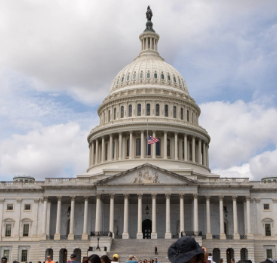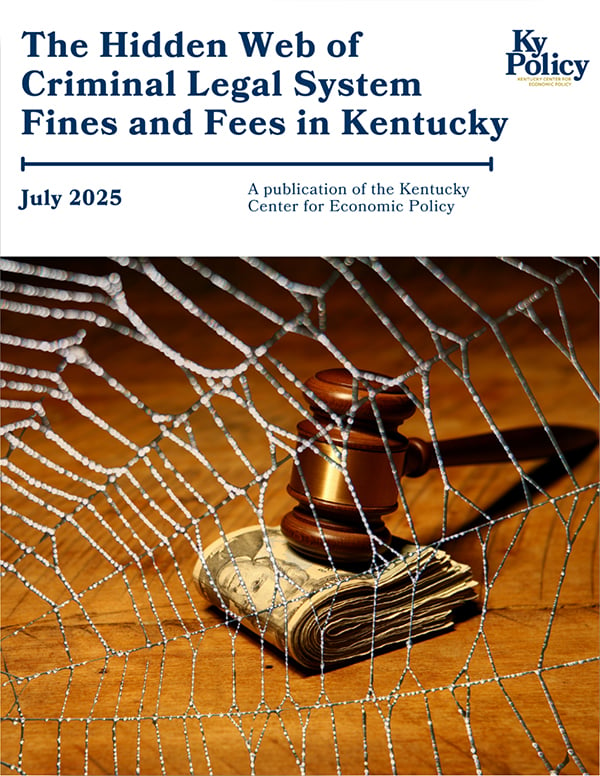Kentucky’s senior senator again finds himself in the middle of a firestorm as the Congress is faced with funding the Department of Homeland Security for the remaining of the current fiscal year.
Senator McConnell started his tenure as majority leader promising to avoid the chaos of government shutdowns.
Originally the deadline for action on DHS funding was last Friday, Feb. 27, but efforts to fund DHS ended in a confusing mess with Congress extending the Department’s funding for only one week.
While the Senate spent the week developing a consensus deal to pass a DHS funding bill that allows DHS to focus on its mission to protect America; the House Republicans continued to insist that the funding bill also curtail the president’s executive order allowing 5 million undocumented immigrants to stay. The DHS funding bill passed the Senate with a broad bipartisan majority of 68 to 31.
The action last week demonstrated the challenge facing House Republicans with their Tea Party members who appear willing to take actions that include closing government agencies, rather than seek political compromise. In their comments some House Republican members have gone as far as to urge Senate Republicans to do away with the filibuster and simply pass all House bills with a simple majority vote.
Senate Majority Leader McConnell and his Senate Republican colleagues, know well the importance of protecting the rights of the minority, and appreciate that they may well one day lose their majority. In fact much of the focus of Senate Republicans is to help protect their current majority that will be tested in 2016 when 24 Republican seats, and only 10 Democratic seats are up for re-election. Several of the Republican seats up in 2016 are in states President Obama carried in 2012, and Senate Republicans know that the composition of the electorate is very different in Presidential years than it was in the off-year of 2014 when Republicans made large gains.

Over the last two weeks Majority Leader McConnell has pushed the Senate to take four votes to try and pass the House bill that contains the reversal of the president’s immigration orders issued last year and in 2012. On each occasion the Senate Democrats were united in voting to continue a filibuster against the House passed bill.
In the House the Republican leaders tried to pass a three-week extension of DHS funding in order to continue negotiations with the Senate, but the three-week extension bill was voted down when Democrats decided to oppose it. The House Republican leadership had 52 defections and DHS funding was defeated on a vote of 203 to 224. Then with only hours to go before the Friday midnight deadline, House Democrats agreed to support a Senate approved one-week extension that passed 357 to 60.
What will happen next? The House Republicans voted for the one-week extension insisting on a traditional Conference Committee with the Senate; but Senate Democrats have the ability to block a conference and have vowed they will. House Democrats voted for the one-week extension believing that this week the House will consider the Senate-passed full fiscal year extension.
Bottom line for Speaker Boehner and House Republicans is whether or not they are willing to pass the Senate DHS funding bill relying on strong Democratic support while losing many of the most conservative House Republicans.
Some Republicans are hoping that there will be a favorable court ruling affirming the recent Appeals Court decision staying the president’s executive order and giving some cover for passage of the Senate bill. However, House Republicans are once again faced with a deadline of their own making with no clear exit strategy. With tough choices on the so-called Doc Fix, expired tax provisions, debt ceiling, highway trust fund, and Export Import Bank coming in the next few months this is a very worrisome beginning for the 114th Congress.
Tom Block is a public policy consultant who had a 21-year career with JP Morgan Chase where he served as head of government relations in New York City and created a Washington research product. He also created the bank’s EU Government Relations program and developed a new position as U.S. government policy strategist focusing on how U.S. government policy impacts capital markets. He has an extensive government and banking background, has worked on political campaigns and as a speech writer. He is a family trustee of Bernheim Aboretum in Louisville and holds a bachelor’s degree in political science from American University. He and his wife make their home in Kentucky. Contact him at tomblockct@aol.com.


















